DEC 2022. Blues Vol 38 No. 12
- Text
- Tina jaeckle
- Jessica jones
- Rex evans editor
- Michael barron publisher
- Iacp officer of the year
- Officer thadue holloway
- Christmas gift guide
- Police news
- Bluespolicemagazine
- Largest police magazine
- Holloway
AROUND THE COUNTRY
AROUND THE COUNTRY Mental Wellness Check-ins What they are and how they help. By Marie Ridgeway, Imagine you have a car you depend on but don’t take care of. You fill it with gas and drive it every day, but never change the oil, rotate the tires, or add coolant or other fluids. When the “check engine” light illuminates, you just keep driving. More warning lights come on, but you ignore them. After all, the car has been going for years without any serious problems. Why shouldn’t it keep running forever? Many of us treat our minds the same way. We use them every day, fill them up with experiences (both positive and negative) but otherwise take them for granted. We actively ignore problem thoughts and behaviors, assuming they’ll just go away or somehow take care of themselves. Unfortunately, like a poorly maintained car, neglecting your mental health can result in an eventual breakdown. The primary goal of mental wellness check-ins is to provide public safety employees with increased quality of life as well as tools to manage their response to stress and trauma. First responders deal with difficult situations almost every day. They see accidents, experience violence and witness some of the worst humanity has to offer. All those images, incidents and experiences can get internalized in their minds as trauma. Unfortunately, the stigma against seeking help for this trauma can cause the problems to multiply. Many in public safety turn to alcohol or other substances to dull the pain. Some (as many as one in four) consider taking their own lives. In an effort to improve mental health, reduce negative perceptions of treatment and break the cycle of neglect, my practice, Ridgeway & Associates, has put together a program that combines mandatory mental wellness check-ins and optional follow-up therapy sessions in a package for law enforcement agencies. MENTAL WELLNESS CHECK-IN PROGRAM Going back to the hypothetical car mentioned earlier, mental wellness check-ins are a lot like checking fluids and rotating tires. They provide an opportunity for every person in a law enforcement agency to literally check in with a therapist with no pressure or expectations – at no cost to the participant and with complete confidentiality. If everything is fine … great! The person has satisfied the requirement and nothing else has to happen until next year. If the participant decides they could benefit from therapy for any reason, they can come back for follow-up counseling (which is also completely confidential). Also, if the person doing the check-in has unresolved trauma or other issues but is hesitant to commit to therapy, at least they’ll have established a relationship with a therapist and know someone they can call when they eventually decide to seek help. WHAT IS A CHECK-IN? Some of the agencies we work with refer to mental wellness check-ins as “a checkup from the neck up.” A check-in is an annual, mandatory 50-minute session in which someone sits down and talks with a therapist. Sounds straightforward, right? In the case of law enforcement employees, it’s a private conversation between a public safety professional and a mental health professional who really understands public safety and the challenges that go along with the profession. Since they’re mandatory, check-ins ensure every department employee has a chance, at least once a year, to talk about any problems they might be experiencing and determine whether they might need additional help. The primary goal of mental wellness check-ins is to provide public safety employees with increased quality of life as well as tools to manage their response to stress and trauma. Check-ins help prevent suicide by building positive relationships between law enforcement personnel and therapists certified to work with them so that officers understand there is always someone who knows how to help and something that can be done when stressors become overwhelming. These relationships might pay off now or in the future, depending on each person’s frame of mind and individual needs. WHAT A CHECK-IN ISN’T Imagine going to your dentist for a checkup and saying, “Hey, while I’m here, can I get a quick root canal?” That’s not how it works – you’ll need to make a separate appointment (or multiple appointments) for that. Dental checkups and mental wellness check-ins are both about prevention, not treatment. A mental wellness check-in is not a therapy session. During the 50 minutes, the therapist will not evaluate you or diagnose you. But that’s not to say that a check-in can’t lead to therapy. In fact, between 10% and 20% of the people who come to us for annual check-ins end up scheduling additional sessions. Like the check-ins, the cost of those additional voluntary counseling sessions are included in the contract our practice has with the agency so that you can continue to see the person you completed your check-in with, if you choose. They’re also protected by the same umbrella of confidentiality. (Read more about this below.) WHAT DO WE TALK ABOUT? With mandatory annual checkins, the baseline requirement is that the employee make an appointment and show up at the allotted time. There is no expectation of what a participant shares, nor that they stay the full 50 minutes, but nearly everyone does feel comfortable enough to stay and to share. In a typical check-in, the therapist will take time to get a general idea of how that individual is doing. If the individual is open to some coaching, the therapist may also review some of the ways people in law enforcement can maintain mental wellness, including: Physical factors like sleep, exercise, hydration and nutrition Mental factors like mindset, work-life balance and coping strategies Social factors like support structures (family, friends, workplace and coworkers) and group activities How stress accumulation can impact a person’s physical well-being, mood and cognitive function The benefits of receiving professional mental health counseling and therapy and how it works If the person participating in the check-in doesn’t want to talk about any of this stuff, they might tell the therapist about last weekend’s fishing trip, or the lake house they love to get away to. Most participants are interested in talking about wellness and their unique situation. The important thing is the visit, the touchpoint and the relationship. As therapists, the one takeaway we want every public safety employee to leave with is that we’re here for them when they need us – today, tomorrow, 24/7 and on into the future. CHECK-IN CONFIDENTIALITY Mental wellness check-ins are not therapy, but the rules of confidentiality that apply to therapy sessions also apply to check-ins. 46 The BLUES The BLUES 47
- Page 1 and 2: The BLUES 1
- Page 4: FOUNDED IN 1984 OUR TEAM MICHAEL BA
- Page 8: FROM THE GUEST EDITOR’S DESK Noti
- Page 12: READERS SPEAK OUT Throwing Down-Bal
- Page 16: AROUND THE COUNTRY CABO ROJO, PUERT
- Page 20: AROUND THE COUNTRY PUNTA GORDA, FL.
- Page 24: AROUND THE COUNTRY LAS ANGELES, CA
- Page 28: BACK THE BLUE AWARD FLORIDA HIGHWAY
- Page 32: AROUND THE COUNTRY TAMPA BAY, FL. N
- Page 36: AROUND THE COUNTRY WASHINGTON, DC.
- Page 40: AROUND THE COUNTRY HAMILTON CNTY, T
- Page 44: concealed weapon on him while handc
- Page 50: AROUND THE COUNTRY Grief & The Holi
- Page 54: Spanish Police Take Delivery of 169
- Page 58: True Warrior: Officer Thadeu Hollow
- Page 62: In a Split Second “When he turned
- Page 66: Holloway showed “remarkable” ca
- Page 70: Holiday Gift Ideas for Your Law Enf
- Page 74: Tactical Vest Koozie This is a funn
- Page 78: Kickass Rides for Adults ZFORCE 950
- Page 82: RIDE-ON CAR MASERATI FOR KIDS This
- Page 86: HONORING OUR FALLEN HEROES LIEUTENA
- Page 90: HONORING OUR FALLEN HEROES DEPUTY S
- Page 94: BY LT. BOB EVANS The Christmas That
- Page 98:
A Cop, Flight Nurse and Two Endings
- Page 102:
THE OPEN ROAD by Michael Barron Bes
- Page 106:
11. HONDA PIONEER 1000- 5This five-
- Page 110:
A BADGE OF HONOR healing our heroes
- Page 114:
NOT SO BRIGHT AWARD lig ht bul b aw
- Page 118:
DR. TINA JAECKLE blue mental health
- Page 122:
SUPPORT THE OFFICER DOWN MEMORIAL P
- Page 126:
ADS BACK IN THE DAY 126 The BLUES T
- Page 130:
Your Source for Law Enforcement Pro
- Page 134:
CAP Fleet is an emergency vehicle u
- Page 138:
DANA SAFETY SUPPLY Dana Safety Supp
- Page 142:
Key Management & Key Control Produc
- Page 146:
Supporting Law Enforcement in TEXAS
- Page 150:
NOW HIRING LE job posit ions Tx. Co
- Page 154:
154 The BLUES The BLUES 155
- Page 158:
austin officers austin dispatch 158
- Page 162:
BECOME A BAYTOWN PATROL OFFICER! ST
- Page 166:
Cuero Police Department Now Hiring
- Page 170:
Forney ISD Police Department NOW HI
- Page 174:
174 The BLUES The BLUES 175
- Page 178:
WE ARE HIRING! BENEFITS • Free ba
- Page 182:
Welcome Mesquite PD 182 The BLUES T
- Page 186:
Memorial Villages Police Department
- Page 190:
MAKE A DIFFERENCE IN YOUR COMMUNITY
- Page 194:
PORT HOUSTON POLICE DEPARTMENT WE A
- Page 198:
City of Wylie Police Department OFF
- Page 202:
202 The BLUES
Inappropriate
Loading...
Mail this publication
Loading...
Embed
Loading...

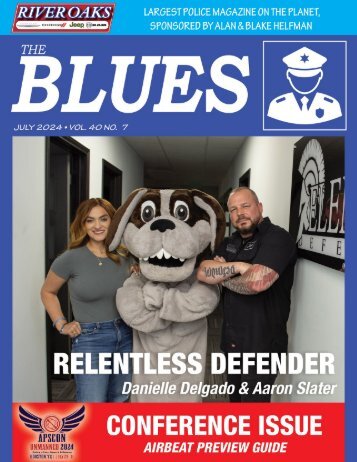

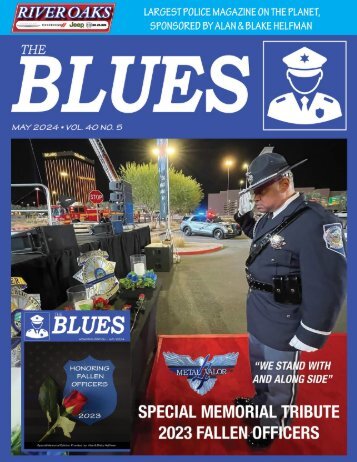
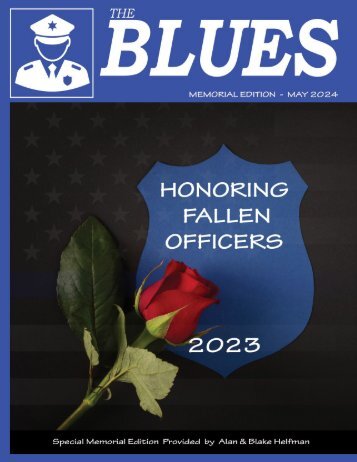
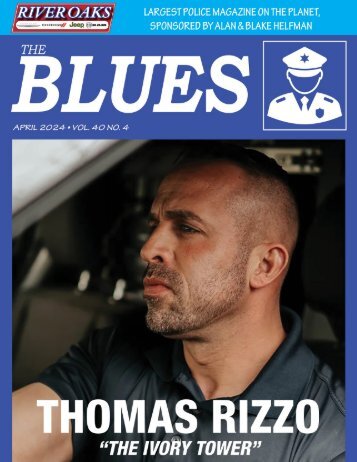


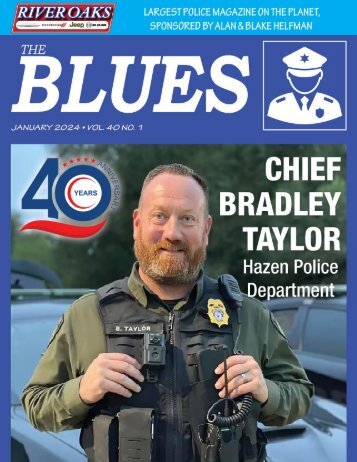
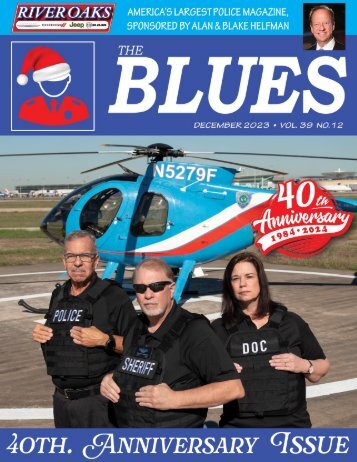
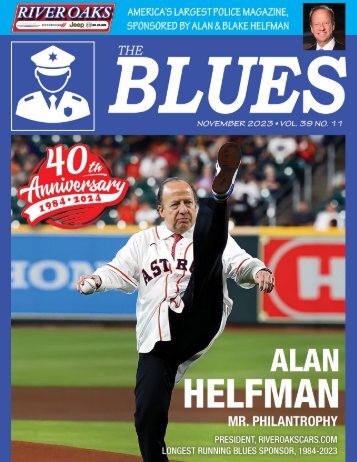
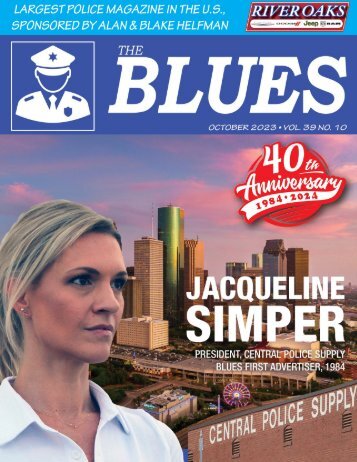
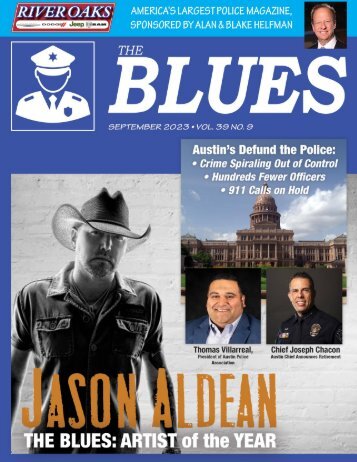
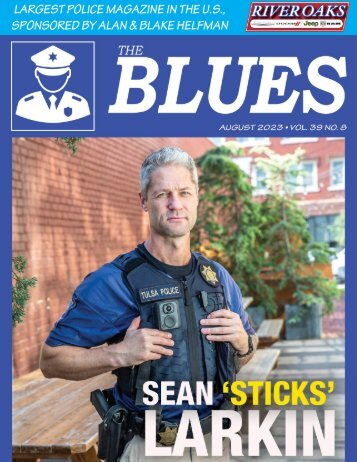
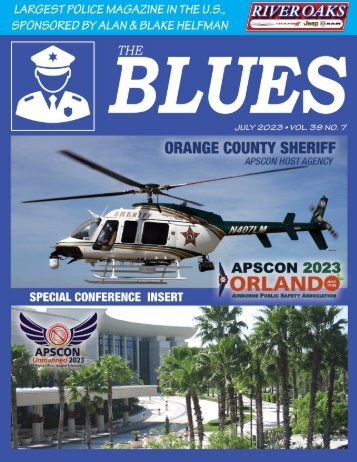

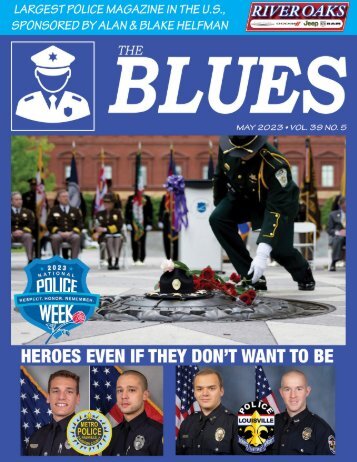
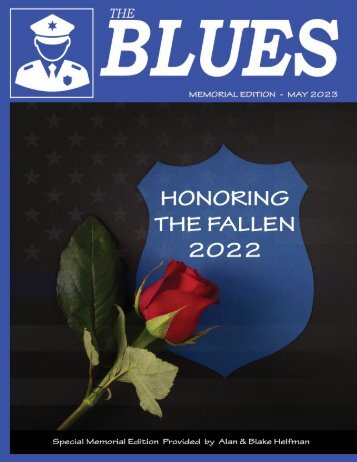
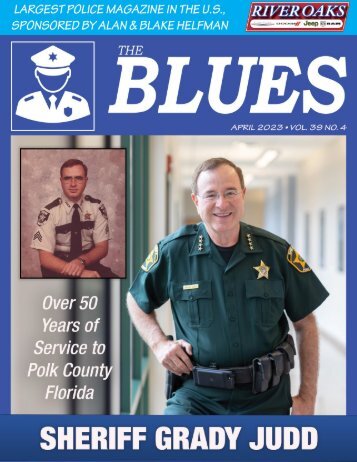
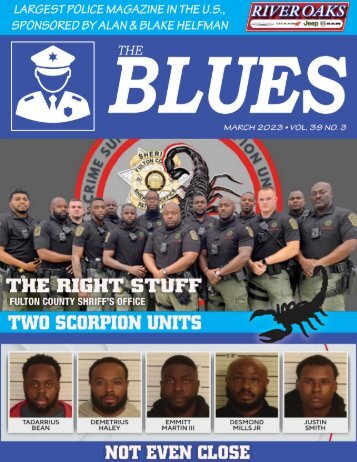

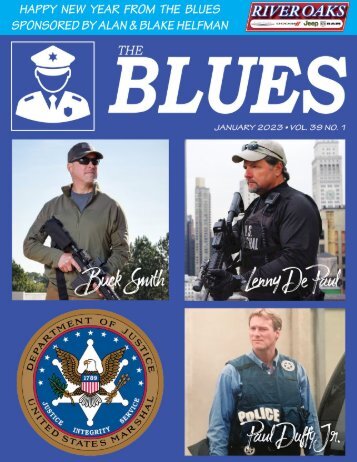



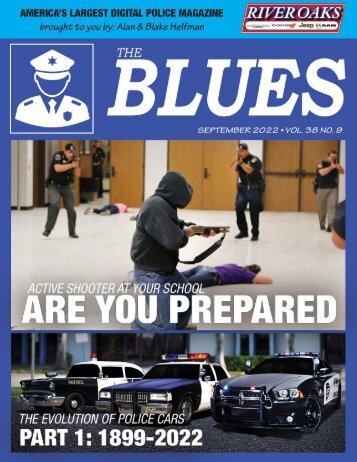
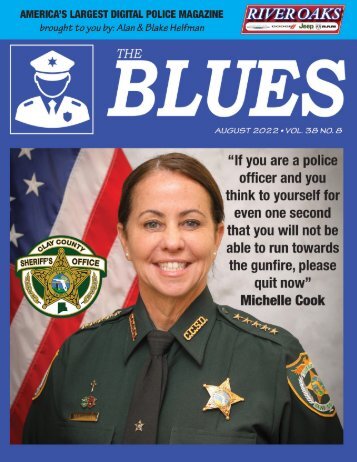

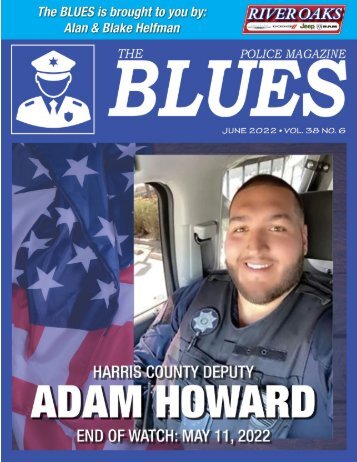

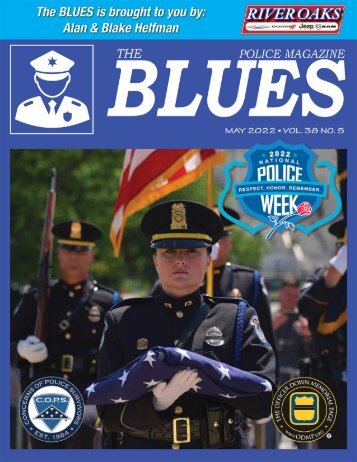
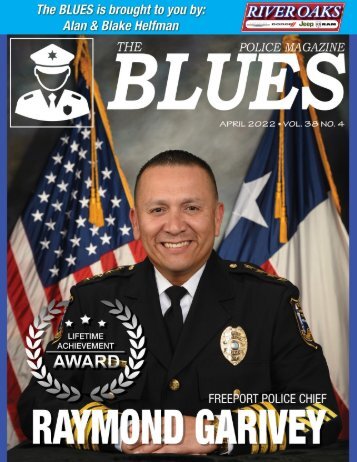

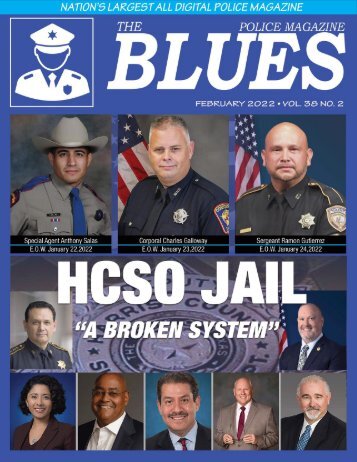
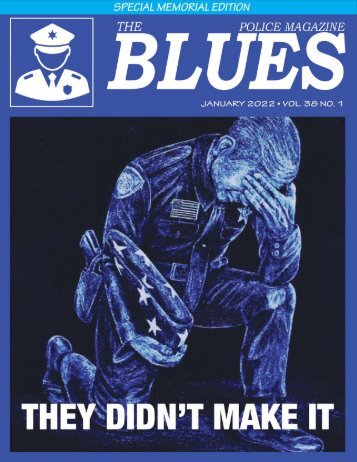


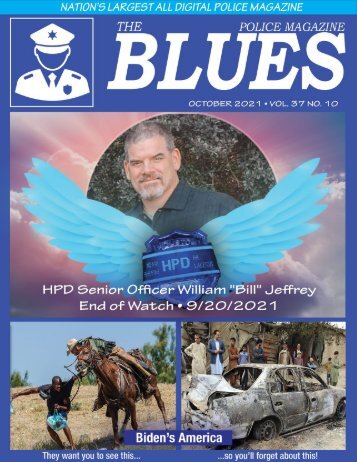
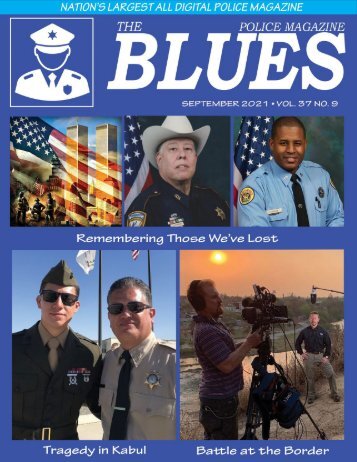





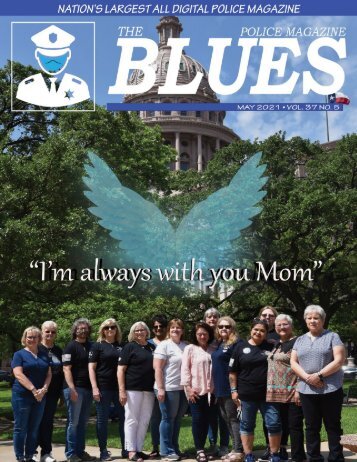
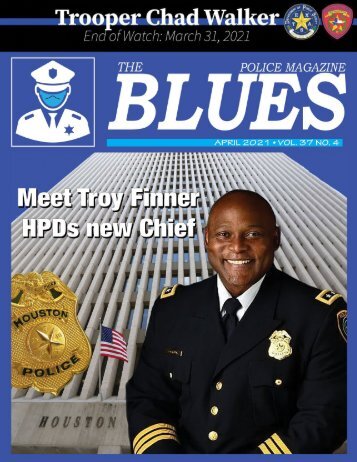
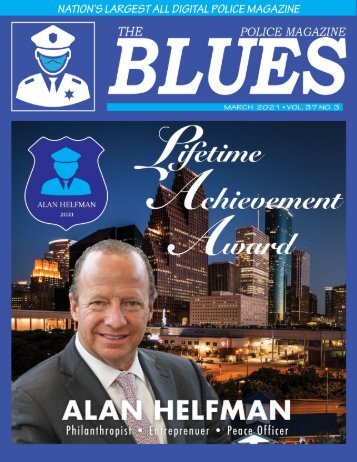
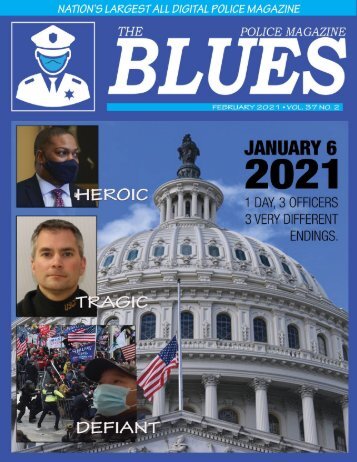


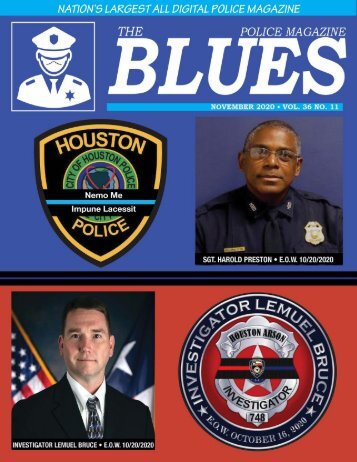


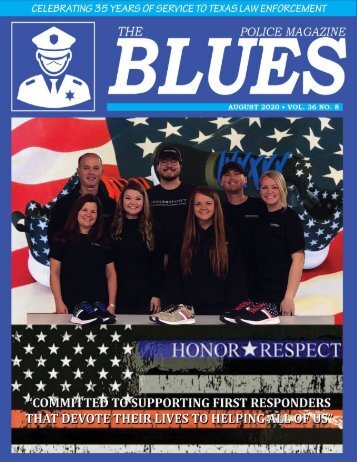

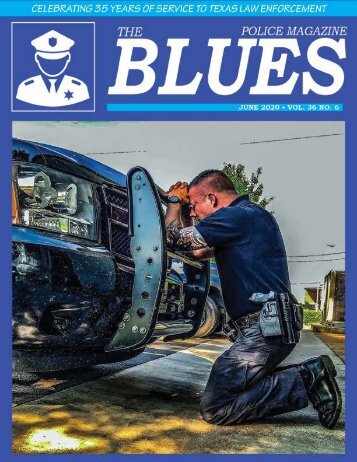

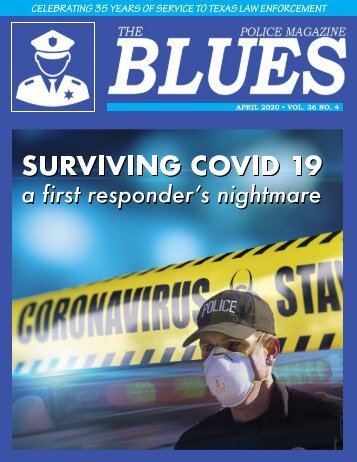

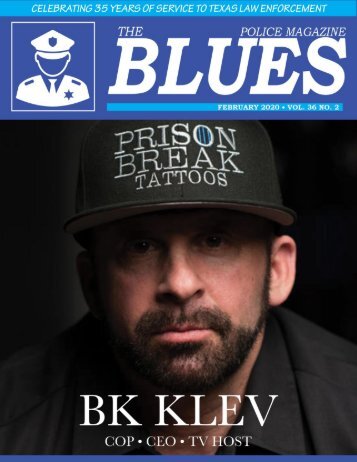
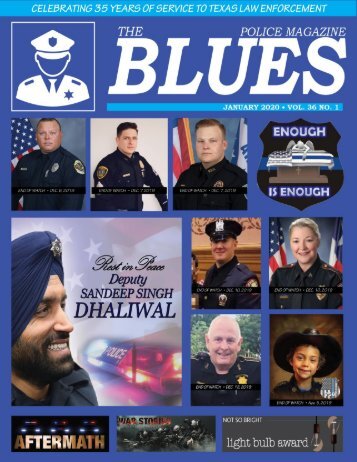
Follow Us
Facebook